In this exclusive interview, TheCSRUniverse is in conversation with key leaders at Himalaya Wellness Company who shed light on their comprehensive approach to corporate social responsibility (CSR) and the impactful initiatives undertaken to foster holistic well-being in society. KG Umesh, Director-Human Resources; Rajesh Krishnamurthy, Business Director-Consumer Products Division; and Chakravarthi N V, Director-BabyCare, articulate Himalaya's overarching social philosophy of "Care for Life," which underpins their vision of "Wellness in every Home and Happiness in every Heart".
The interview delves into specific initiatives like Project Lakshmi for women empowerment, Project Suraksha for suicide prevention, Kisaan Mitra for farmer empowerment, and Ek Nayi Muskaan for cleft lip surgery. It highlights the evolution of Himalaya's CSR initiatives, driven by a strategic shift towards sustainability and scalability, aligned with business objectives and societal needs. The interview also emphasizes the importance of partnerships with NGOs, government agencies, and other stakeholders to amplify impact and foster inclusive growth.
Read the full interview to learn how one of the most trusted brands in the country is giving back to the society by engaging and empowering each stakeholder:
Q. What is the overarching social philosophy of Himalaya Wellness Company and how has it helped in defining your focus areas and choice of initiatives?
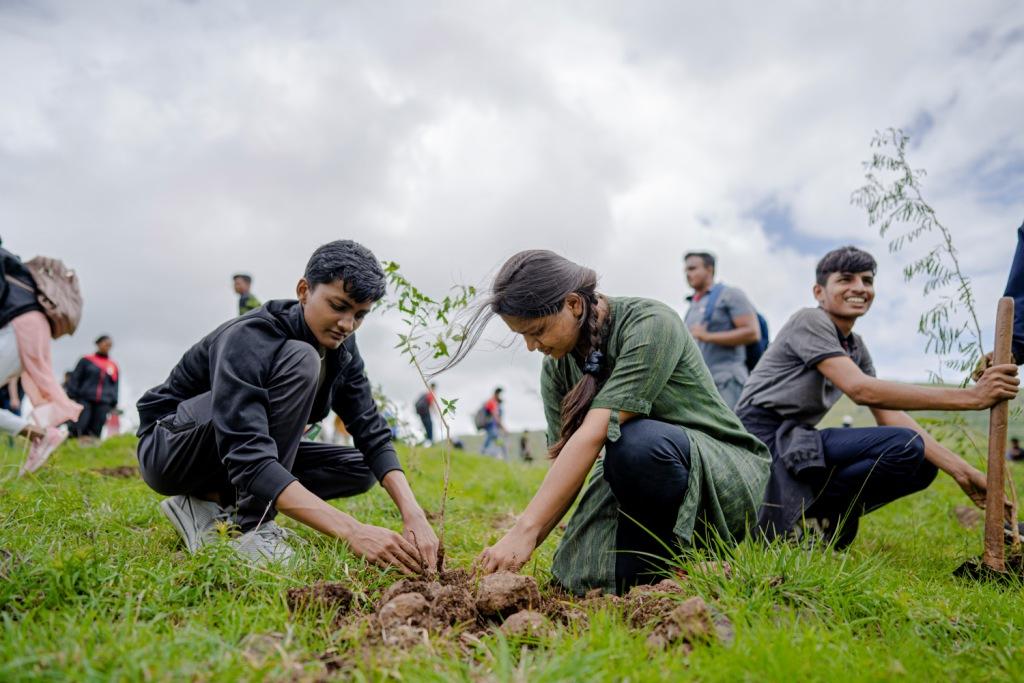 A. ‘Care for Life’ is deeply enshrined in the philosophy of Himalaya Wellness Company. This reinforces our vision of “Wellness in every Home and Happiness in every Heart”. Himalaya is committed to improving health and respecting life in all its forms. Thus, the social initiatives at Himalaya Wellness Company stem from the above ideology and are built on three key principles: Care for Earth, Care for Community, and Care for Health.
A. ‘Care for Life’ is deeply enshrined in the philosophy of Himalaya Wellness Company. This reinforces our vision of “Wellness in every Home and Happiness in every Heart”. Himalaya is committed to improving health and respecting life in all its forms. Thus, the social initiatives at Himalaya Wellness Company stem from the above ideology and are built on three key principles: Care for Earth, Care for Community, and Care for Health.
Himalaya has pledged to conserve biodiversity through several initiatives under the Care for Earth philosophy. Over nine lakh trees have been planted across the Western Ghats, Karnataka, and Meghalaya in a bid to restore the quality of our planet and uplift the lives of the local communities. The renewed landscape now attracts diverse flora and fauna besides helping maintain an ecological balance.
Care for Community is an investment towards improving the well-being of the communities through enhancement in learning infrastructure at government schools, empowering women and marginalized farmers through initiatives such as Project Lakshmi and Kisaan Mitra. Project Suraksha takes an altogether different dimension of raising awareness about mental well-being in communities.
Care for Health, which is the third pillar, strongly advocates for good health and well-being through initiatives curated with NGO partners, including serving nutritious mid-day meals at government schools, and supporting rehabilitation of Thalassemia-affected children from underprivileged communities. Our flagship initiative, Muskaan raises awareness about cleft lip and palate and provides corrective surgeries to the affected children from underprivileged backgrounds.
Q. How have Himalaya's social initiatives evolved over the past few years, and what factors have influenced these changes?
A. Himalaya's social initiatives have transformed from traditional philanthropy to strategic, integrated endeavors addressing societal needs while aligning with business objectives. This evolution is driven by a shift towards creating sustainable and scalable solutions that leverage core competencies and resources. Initiatives like Project Suraksha for suicide prevention, Ek Nayi Muskaan for cleft lip surgery, and Kisaan Mitra for farmer empowerment exemplify this approach. Changing stakeholder expectations and global trends towards environmental sustainability and ethical business practices have further influenced this evolution. Partnerships with NGOs, government agencies, and other stakeholders have also played a crucial role, enabling collaboration, innovation, and amplified impact. Himalaya's commitment to create positive change while making a meaningful difference in society underscores the continued evolution and effectiveness of our social initiatives.
Our business philosophy defines the way we think and inspires our actions. Investing in good health goes beyond developing high-quality products. Care for Life and the three verticals of Environment, Community, and Health have been the defining elements upon which the social welfare initiatives have been structured. At Himalaya, we are passionate about protecting the Earth, caring for the Community, and improving Health, thus respecting life in all forms. This spirit to enrich and improve lives has shaped and inspired the initiatives supported at Himalaya.
During the pandemic, Himalaya devised various initiatives under ‘Himalaya Cares’, reaching out to diverse stakeholder communities with supplies of health and hygiene essentials across India, besides reaching out to lakhs of frontline health workers with medical supplies to help battle COVID-19.
Himalaya Wellness Company continues to curate several welfare initiatives, keeping the needs of the environment and communities at the forefront.
Q. Please tell us a little more about Project Lakshmi- what are the specific skill training programs that you offer under it and how have they contributed to the financial independence of women in rural India?
A. Project Lakshmi: - Women Empowerment Program
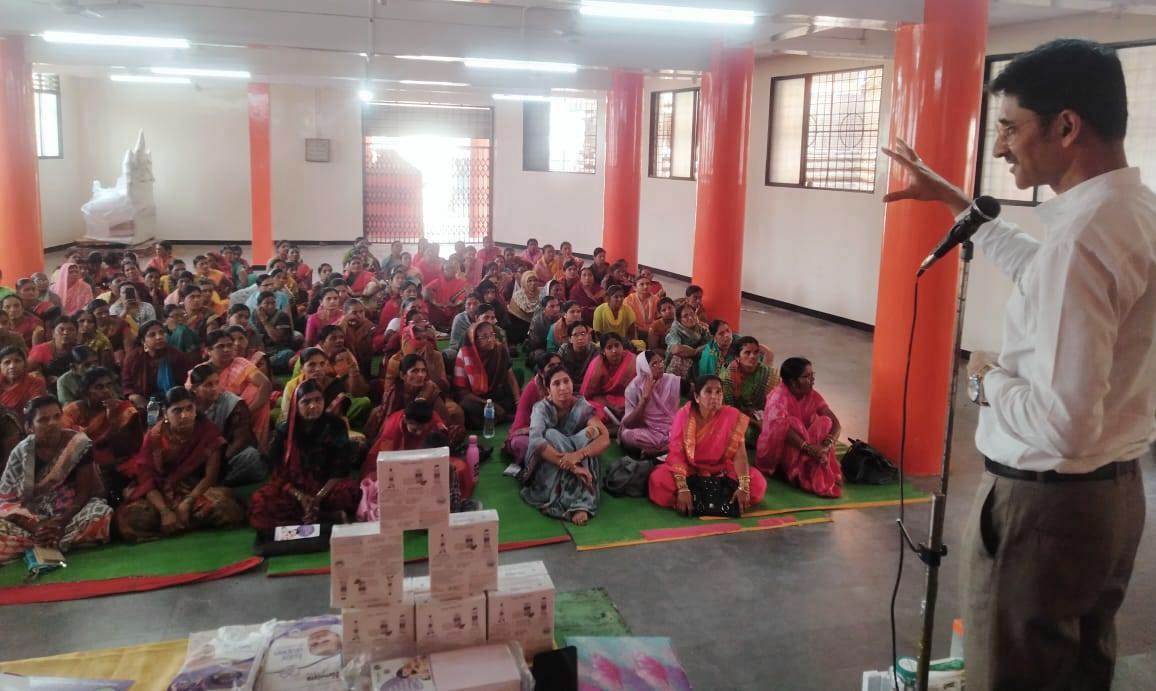 Our Project Lakshmi initiative helps women in rural India achieve financial independence through various skill training programs. These comprehensive programs include product training, identifying revenue opportunities, improving sales techniques, developing negotiation skills, handling customer complaints, and implementing demand generation strategies. In addition to imparting financial skills, Project Lakshmi promotes resilience and self-reliance among its participants. By equipping women with essential information and tools, the program empowers them to take control of their financial future and become catalysts for positive change in their communities. With diverse sources of income and better market prospects, participants become empowered individuals who can make significant contributions to socio-economic development.
Our Project Lakshmi initiative helps women in rural India achieve financial independence through various skill training programs. These comprehensive programs include product training, identifying revenue opportunities, improving sales techniques, developing negotiation skills, handling customer complaints, and implementing demand generation strategies. In addition to imparting financial skills, Project Lakshmi promotes resilience and self-reliance among its participants. By equipping women with essential information and tools, the program empowers them to take control of their financial future and become catalysts for positive change in their communities. With diverse sources of income and better market prospects, participants become empowered individuals who can make significant contributions to socio-economic development.
Project Lakshmi is active in 10 states across India, including Maharashtra, Madhya Pradesh, Delhi, Uttar Pradesh, Andhra Pradesh, Bihar, Jharkhand, Gujarat, Rajasthan, and Odisha. Four thousand Lakshmis work under this project and promote Himalaya BabyCare and Personal Care products, covering 5000 villages with the help of Project Lakshmi and NGOs, reaching out to over one lakh customers.
Project Lakshmi serves as a beacon of empowerment, transforming lives and boosting sustainability in India. The program's holistic approach not only uplifts individuals, but also creates ripples of empowerment and prosperity throughout rural communities, promoting a brighter and more inclusive future for all.
Q. What role do local communities play in the implementation and sustainability of this project? How do you ensure their active participation and ownership of the program?
A. Local communities are integral to the implementation and sustainability of Project Lakshmi, as the program depends on their active participation and ownership. Through collaboration, the initiative engages community leaders and members in decision-making processes and ensures that activities are adapted to local needs and contexts. Project Lakshmi increases coverage and efficiency by nurturing partnerships and leveraging existing community networks. The program invests in community capacity building, which empowers individuals and organizations to play active roles in program implementation and sustainability efforts. Regular monitoring and evaluation processes ensure transparency and accountability when soliciting feedback from community members, which builds trust and cooperation. Overall, Project Lakshmi recognizes the importance of community engagement in driving positive change and, through meaningful engagement and empowerment, creates a supportive ecosystem where both women and communities thrive.
Q. We would like to discuss further on Project Suraksha which focuses on the complex issue of suicide prevention. What are the components of this program and which stakeholder groups are involved in its implementation?
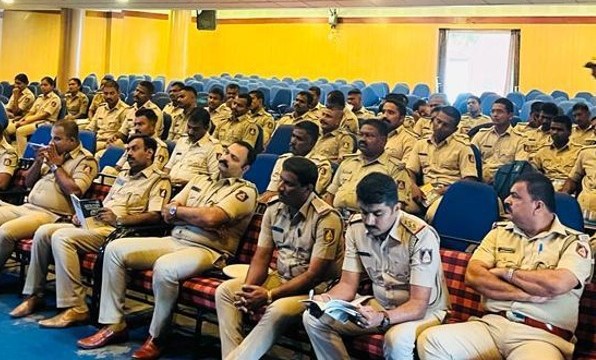 A. Project Suraksha addresses the multifaceted challenge of suicide prevention through several key components. The acronym ‘SURAKSHA’ stands for SURveillance system to trAcK suicide and Self-HArm is a unique collaboration fostered between the National Institute of Mental Health and Neuro Sciences (NIMHANS), the Government of Karnataka, and Himalaya Wellness Company.
A. Project Suraksha addresses the multifaceted challenge of suicide prevention through several key components. The acronym ‘SURAKSHA’ stands for SURveillance system to trAcK suicide and Self-HArm is a unique collaboration fostered between the National Institute of Mental Health and Neuro Sciences (NIMHANS), the Government of Karnataka, and Himalaya Wellness Company.
The project aims to develop and indigenize a pilot model framework for suicide prevention research and surveillance in rural Karnataka. This involves creating a comprehensive surveillance system within communities, including early identification, crisis intervention, and referral systems for mental health support.
It is currently being implemented across 32 panchayats in the Channapatna taluk of Ramanagara district and covers a varied stakeholder set that includes farmers, laborers, daily wage workers, student communities, media professionals, and women groups. This diverse range of stakeholders ensures a holistic approach to addressing suicide prevention, recognizing the unique challenges and needs of different segments of society.
Suicide is a multifactorial cause of mortality across all stages of a person’s life, with almost one million suicide deaths worldwide each year. According to a National Crime Report Bureau (NCRB) report 2022, Karnataka reported 13,606 suicides in 2022, a 4.2% increase from the year 2021, which accounts for 8% of the total suicides in India. The suicide rate in Karnataka is at 20.2%, which is higher than the national average of 12.4%.
This initiative outlines evidence-based strategies like restricting access to means of suicide, responsible media reporting of suicide, training programs to promote life skills among the youth, and the early identification and management of the risk of suicide.
Q. Could you provide insights into the surveillance system developed as part of Project Suraksha and how does it facilitate early identification and intervention for individuals at risk of suicide?
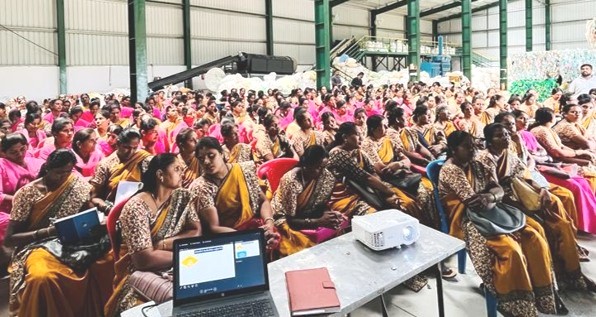 A. Community Based Surveillance Teams (CBST) for suicides have been formed across 32 panchayats and includes cross-sections of communities with representations from ASHA workers, Anganwadi teachers, members from the panchayat and volunteers who are trained to become active participants and hold a vigil on suicide risks and protective factors that emerge from their immediate surroundings. ASHA workers and Primary Health Centre (PHC) staffs are provided Gatekeepers Training that enables them to recognize warning signs of suicide and suicide prevention methods.
A. Community Based Surveillance Teams (CBST) for suicides have been formed across 32 panchayats and includes cross-sections of communities with representations from ASHA workers, Anganwadi teachers, members from the panchayat and volunteers who are trained to become active participants and hold a vigil on suicide risks and protective factors that emerge from their immediate surroundings. ASHA workers and Primary Health Centre (PHC) staffs are provided Gatekeepers Training that enables them to recognize warning signs of suicide and suicide prevention methods.
Since the deployment of this initiative, Project Suraksha has reached out to over 6,000 individuals in Channapatna, raising awareness on mental health and creating over 130 forums addressing suicide prevention. More than 300 ASHA workers have been trained on Gatekeepers Training and are empowered towards responding to suicidal thoughts and actions in the communities.
Brief Intervention for Self Harm and Suicidality (BISS), an assessment training, is introduced in the district hospital and PHCs wherein suicide cases are reported, and the Project Suraksha team reaches out to the survivors and their families to reduce the suicide intent and future attempts.
School-based interventions on mental health awareness are shared amongst youth and children, enabling deeper penetration of awareness dissemination, including warning signs and response methodologies. Information Education and Communication (IEC) materials developed as part of Project Suraksha help demystify the myths, destigmatizing mental health.
The toll-free number established as part of Project Suraksha provides seamless counseling and support to the communities.
Q. We would also like to know about the work being done under Kisaan Mitra which focuses on economic empowerment of farmers. What are the key initiatives taken under this program and how are you working towards the sustainability and scalability of the same?
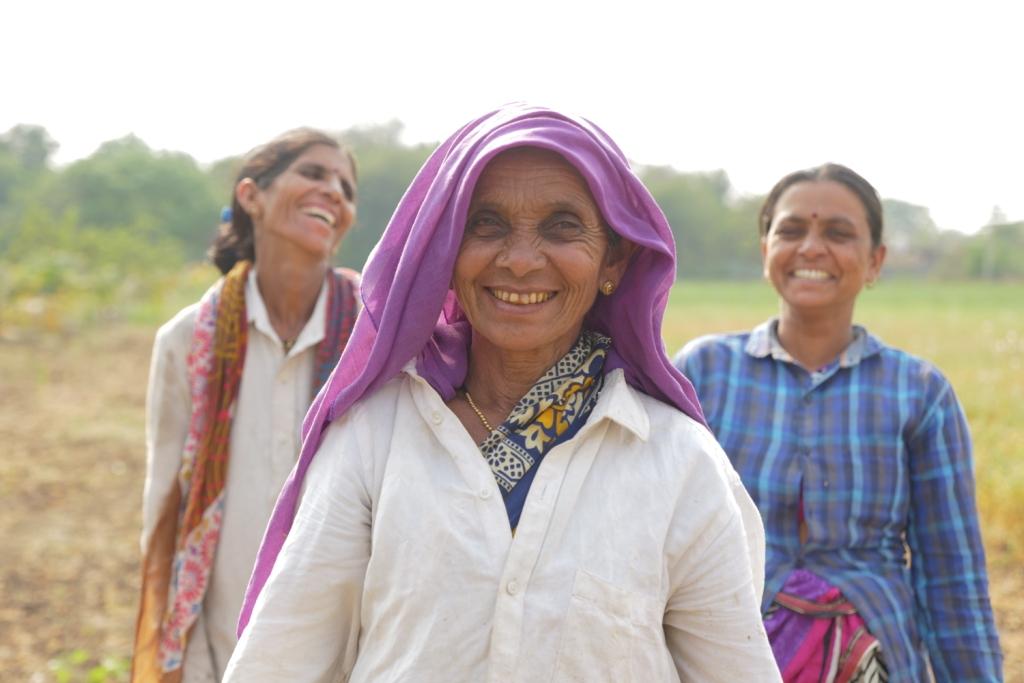 A. Under the Kisaan Mitra (Farmer's Friend) initiative, we are dedicated to the economic empowerment of small and marginalized farmers across India through various key initiatives. Firstly, the program engages with farmers, providing them with training in organic farming techniques and promoting the use of organic fertilizers to enhance soil health and improve crop yields. Additionally, we support post-harvest management of herbs, ensuring fair prices for farmers by purchasing directly from them, thus avoiding mark-ups by middlemen and market fluctuations. The program also provides expert guidance on crop selection and encourages the adoption of Good Agricultural and Collection Practices (GACP) through contingent crop planning. We also offer free seeds to farmers and collaborate with organizations like NAAM Foundation to mobilize and educate farming communities. Notably, the initiative has significantly increased the quantity of herbs procured through contract farming, leading to sustainable incomes for farmers. To ensure sustainability and scalability, we closely monitor the program, conducting soil and water testing, and provide ongoing support to farmers. The success of the program has inspired other farmers to take up herb cultivation, highlighting its mutual benefits and potential for long-term impact on rural livelihoods.
A. Under the Kisaan Mitra (Farmer's Friend) initiative, we are dedicated to the economic empowerment of small and marginalized farmers across India through various key initiatives. Firstly, the program engages with farmers, providing them with training in organic farming techniques and promoting the use of organic fertilizers to enhance soil health and improve crop yields. Additionally, we support post-harvest management of herbs, ensuring fair prices for farmers by purchasing directly from them, thus avoiding mark-ups by middlemen and market fluctuations. The program also provides expert guidance on crop selection and encourages the adoption of Good Agricultural and Collection Practices (GACP) through contingent crop planning. We also offer free seeds to farmers and collaborate with organizations like NAAM Foundation to mobilize and educate farming communities. Notably, the initiative has significantly increased the quantity of herbs procured through contract farming, leading to sustainable incomes for farmers. To ensure sustainability and scalability, we closely monitor the program, conducting soil and water testing, and provide ongoing support to farmers. The success of the program has inspired other farmers to take up herb cultivation, highlighting its mutual benefits and potential for long-term impact on rural livelihoods.
Kisaan Mitra celebrates a deep connect by focusing on economic empowerment of small and marginalized farmers across India. Himalaya engages with over 595 farmers to grow medicinal plants on small tracts of land. They are trained on Good Agricultural Practices (GAP), organic farming techniques, including use of vermicompost, green manure, and Neem cakes. Farmers are handheld with expert guidance of selecting crop varieties and ensuring a higher economic yield. Himalaya also supports the post-harvest management of herbs, including cleaning, processing, and packing.
Under the contract farming program, Himalaya purchases the herbs directly from the farmers at a predetermined price based on mutual agreements. Committed to making contract farming accessible and profitable to farmers, Himalaya has significantly increased the quantity of herbs procured through this initiative. Kisaan Mitra has truly been a farmers’ delight, as they earn a sustainable income compared to the income generated previously by them, and this has inspired several other farmers to join this program.
Q. Ek Nayi Muskaan appears to be one of your most acclaimed initiatives. In your opinion, what factors have shaped the success of this initiative?
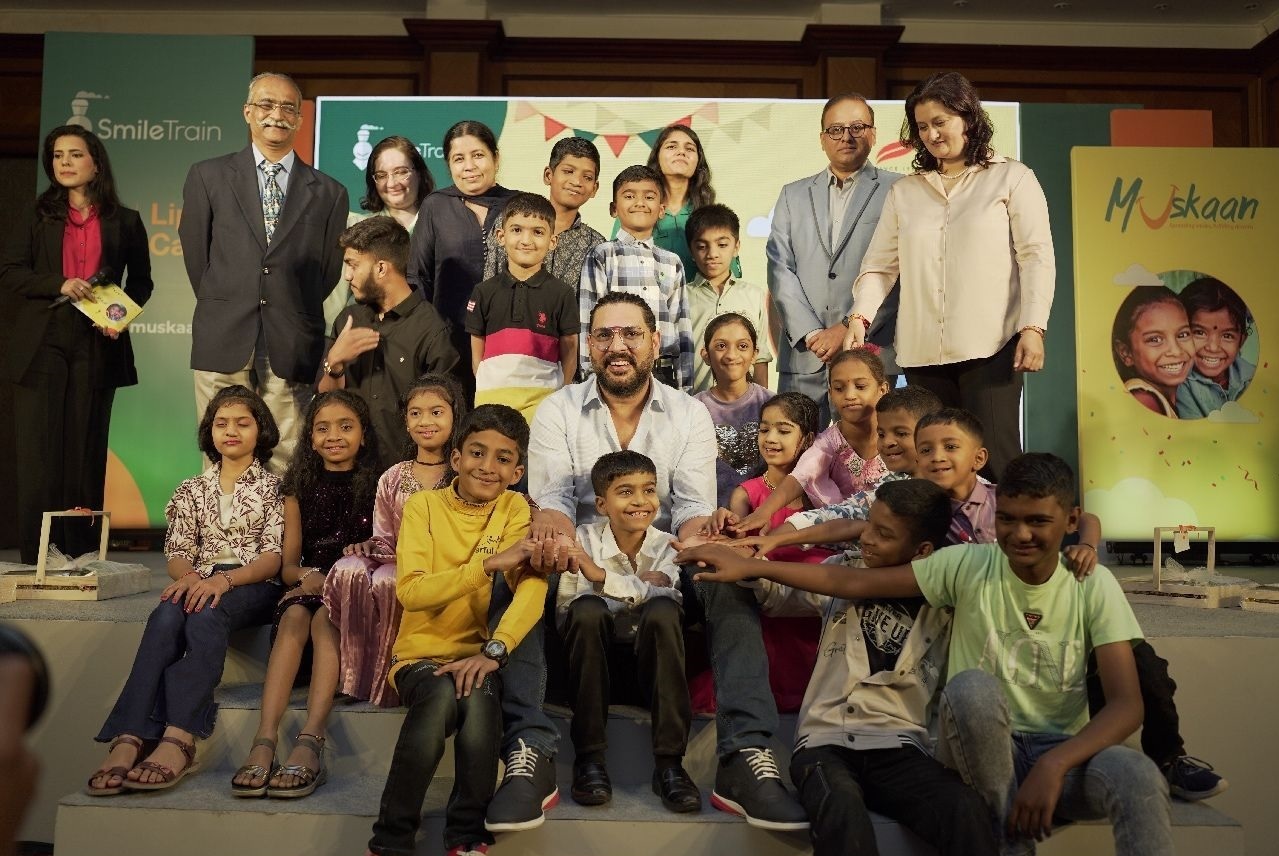 A. The success of the Muskaan initiative, in partnership with Smile Train India, can be attributed to several key factors. Firstly, the initiative addresses a critical healthcare need by providing free corrective cleft lip surgeries for underprivileged children, thus significantly improving their quality of life. By raising awareness about cleft lip and palate treatment at the grassroots level and dispelling myths surrounding the condition, Muskaan ensures that the affected children receive timely and appropriate care. Moreover, the initiative engages various stakeholders, including customers who contribute towards the cause through the purchase of Himalaya Lip Care products, thus fostering a sense of community involvement and support. Additionally, the initiative's impactful storytelling, exemplified through the transformational journeys of children, helps highlight the emotional and social aspects of living with cleft lip while also showcasing the positive outcomes achievable through corrective surgeries. Furthermore, the recognition received for Muskaan initiative through various awards underscores the effectiveness and impact of the initiative, further bolstering its credibility and commitment towards making a difference in the lives of children with cleft lip and palate. Overall, the success can be attributed to its comprehensive approach, community engagement, impactful storytelling, and commitment to addressing a pressing healthcare need.
A. The success of the Muskaan initiative, in partnership with Smile Train India, can be attributed to several key factors. Firstly, the initiative addresses a critical healthcare need by providing free corrective cleft lip surgeries for underprivileged children, thus significantly improving their quality of life. By raising awareness about cleft lip and palate treatment at the grassroots level and dispelling myths surrounding the condition, Muskaan ensures that the affected children receive timely and appropriate care. Moreover, the initiative engages various stakeholders, including customers who contribute towards the cause through the purchase of Himalaya Lip Care products, thus fostering a sense of community involvement and support. Additionally, the initiative's impactful storytelling, exemplified through the transformational journeys of children, helps highlight the emotional and social aspects of living with cleft lip while also showcasing the positive outcomes achievable through corrective surgeries. Furthermore, the recognition received for Muskaan initiative through various awards underscores the effectiveness and impact of the initiative, further bolstering its credibility and commitment towards making a difference in the lives of children with cleft lip and palate. Overall, the success can be attributed to its comprehensive approach, community engagement, impactful storytelling, and commitment to addressing a pressing healthcare need.
Q. Besides Smile Train for Ek Nayi Muskaan and NAAM Foundation for Kisaan Mitra, which other organizations are you working with for the implementation of various projects?
A. Himalaya Wellness Company collaborates with various organizations for the implementation of a wide range of projects aimed at social welfare and environmental conservation. Some of these organizations include:
- Charlie’s Animal Rescue Centre (CARE): Partnering to support stray animal feeding in Bengaluru, providing veterinary ambulances, specialized medical equipment, and dry pet food to ensure the welfare of street animals.
- SYNJUK: Working together to help communities in Mawphlang and Perkseh transform into sustainable communities by training natives from the Khasi tribe in skills such as vermicomposting, beekeeping, and mushroom cultivation.
- The Akshaya Patra Foundation: Supporting the Mid-Day Meal Program to eliminate hunger among underprivileged children by providing nutritional meals and donating vans to transport food to schools, along with sponsoring "Happiness Kits" for children and their families.
- Sankalp India Foundation (SIF): Collaborating to make treatment accessible to underprivileged children suffering from Thalassemia.
- Himalaya has pledged to conserve biodiversity by protecting the ecosystem through several initiatives. In association with Society for Environment and Biodiversity Conservation (SEBC), Synjuk Mawphlang Welfare Society, India Foundation for Humanistic Development (IFHD), and Say Trees, the tree-planting drives we conduct annually in the biodiversity-rich forests such as the Western Ghats and across India help restore the environment, conserve biodiversity, and uplift local communities.
These partnerships reflect Himalaya's commitment to address various social, environmental, and health-related issues by collaborating with organizations dedicated to making a positive impact in their respective domains.
Q. Based on your experience, what suggestions would you give to businesses, NGOs and policymakers on working together to elevate the impact of CSR projects?
A. Consumers are increasingly becoming aware of the impact of human activities on the environment and community, and a brand that gives back to the planet and contributes to the well-being of the communities is often viewed as a trustworthy companion.




 A. ‘Care for Life’ is deeply enshrined in the philosophy of Himalaya Wellness Company. This reinforces our vision of “Wellness in every Home and Happiness in every Heart”. Himalaya is committed to improving health and respecting life in all its forms. Thus, the social initiatives at Himalaya Wellness Company stem from the above ideology and are built on three key principles: Care for Earth, Care for Community, and Care for Health.
A. ‘Care for Life’ is deeply enshrined in the philosophy of Himalaya Wellness Company. This reinforces our vision of “Wellness in every Home and Happiness in every Heart”. Himalaya is committed to improving health and respecting life in all its forms. Thus, the social initiatives at Himalaya Wellness Company stem from the above ideology and are built on three key principles: Care for Earth, Care for Community, and Care for Health. Our Project Lakshmi initiative helps women in rural India achieve financial independence through various skill training programs. These comprehensive programs include product training, identifying revenue opportunities, improving sales techniques, developing negotiation skills, handling customer complaints, and implementing demand generation strategies. In addition to imparting financial skills, Project Lakshmi promotes resilience and self-reliance among its participants. By equipping women with essential information and tools, the program empowers them to take control of their financial future and become catalysts for positive change in their communities. With diverse sources of income and better market prospects, participants become empowered individuals who can make significant contributions to socio-economic development.
Our Project Lakshmi initiative helps women in rural India achieve financial independence through various skill training programs. These comprehensive programs include product training, identifying revenue opportunities, improving sales techniques, developing negotiation skills, handling customer complaints, and implementing demand generation strategies. In addition to imparting financial skills, Project Lakshmi promotes resilience and self-reliance among its participants. By equipping women with essential information and tools, the program empowers them to take control of their financial future and become catalysts for positive change in their communities. With diverse sources of income and better market prospects, participants become empowered individuals who can make significant contributions to socio-economic development. A. Project Suraksha addresses the multifaceted challenge of suicide prevention through several key components. The acronym ‘SURAKSHA’ stands for SURveillance system to trAcK suicide and Self-HArm is a unique collaboration fostered between the National Institute of Mental Health and Neuro Sciences (NIMHANS), the Government of Karnataka, and Himalaya Wellness Company.
A. Project Suraksha addresses the multifaceted challenge of suicide prevention through several key components. The acronym ‘SURAKSHA’ stands for SURveillance system to trAcK suicide and Self-HArm is a unique collaboration fostered between the National Institute of Mental Health and Neuro Sciences (NIMHANS), the Government of Karnataka, and Himalaya Wellness Company. A. Community Based Surveillance Teams (CBST) for suicides have been formed across 32 panchayats and includes cross-sections of communities with representations from ASHA workers, Anganwadi teachers, members from the panchayat and volunteers who are trained to become active participants and hold a vigil on suicide risks and protective factors that emerge from their immediate surroundings. ASHA workers and Primary Health Centre (PHC) staffs are provided Gatekeepers Training that enables them to recognize warning signs of suicide and suicide prevention methods.
A. Community Based Surveillance Teams (CBST) for suicides have been formed across 32 panchayats and includes cross-sections of communities with representations from ASHA workers, Anganwadi teachers, members from the panchayat and volunteers who are trained to become active participants and hold a vigil on suicide risks and protective factors that emerge from their immediate surroundings. ASHA workers and Primary Health Centre (PHC) staffs are provided Gatekeepers Training that enables them to recognize warning signs of suicide and suicide prevention methods. A. Under the Kisaan Mitra (Farmer's Friend) initiative, we are dedicated to the economic empowerment of small and marginalized farmers across India through various key initiatives. Firstly, the program engages with farmers, providing them with training in organic farming techniques and promoting the use of organic fertilizers to enhance soil health and improve crop yields. Additionally, we support post-harvest management of herbs, ensuring fair prices for farmers by purchasing directly from them, thus avoiding mark-ups by middlemen and market fluctuations. The program also provides expert guidance on crop selection and encourages the adoption of Good Agricultural and Collection Practices (GACP) through contingent crop planning. We also offer free seeds to farmers and collaborate with organizations like NAAM Foundation to mobilize and educate farming communities. Notably, the initiative has significantly increased the quantity of herbs procured through contract farming, leading to sustainable incomes for farmers. To ensure sustainability and scalability, we closely monitor the program, conducting soil and water testing, and provide ongoing support to farmers. The success of the program has inspired other farmers to take up herb cultivation, highlighting its mutual benefits and potential for long-term impact on rural livelihoods.
A. Under the Kisaan Mitra (Farmer's Friend) initiative, we are dedicated to the economic empowerment of small and marginalized farmers across India through various key initiatives. Firstly, the program engages with farmers, providing them with training in organic farming techniques and promoting the use of organic fertilizers to enhance soil health and improve crop yields. Additionally, we support post-harvest management of herbs, ensuring fair prices for farmers by purchasing directly from them, thus avoiding mark-ups by middlemen and market fluctuations. The program also provides expert guidance on crop selection and encourages the adoption of Good Agricultural and Collection Practices (GACP) through contingent crop planning. We also offer free seeds to farmers and collaborate with organizations like NAAM Foundation to mobilize and educate farming communities. Notably, the initiative has significantly increased the quantity of herbs procured through contract farming, leading to sustainable incomes for farmers. To ensure sustainability and scalability, we closely monitor the program, conducting soil and water testing, and provide ongoing support to farmers. The success of the program has inspired other farmers to take up herb cultivation, highlighting its mutual benefits and potential for long-term impact on rural livelihoods. A. The success of the Muskaan initiative, in partnership with Smile Train India, can be attributed to several key factors. Firstly, the initiative addresses a critical healthcare need by providing free corrective cleft lip surgeries for underprivileged children, thus significantly improving their quality of life. By raising awareness about cleft lip and palate treatment at the grassroots level and dispelling myths surrounding the condition, Muskaan ensures that the affected children receive timely and appropriate care. Moreover, the initiative engages various stakeholders, including customers who contribute towards the cause through the purchase of Himalaya Lip Care products, thus fostering a sense of community involvement and support. Additionally, the initiative's impactful storytelling, exemplified through the transformational journeys of children, helps highlight the emotional and social aspects of living with cleft lip while also showcasing the positive outcomes achievable through corrective surgeries. Furthermore, the recognition received for Muskaan initiative through various awards underscores the effectiveness and impact of the initiative, further bolstering its credibility and commitment towards making a difference in the lives of children with cleft lip and palate. Overall, the success can be attributed to its comprehensive approach, community engagement, impactful storytelling, and commitment to addressing a pressing healthcare need.
A. The success of the Muskaan initiative, in partnership with Smile Train India, can be attributed to several key factors. Firstly, the initiative addresses a critical healthcare need by providing free corrective cleft lip surgeries for underprivileged children, thus significantly improving their quality of life. By raising awareness about cleft lip and palate treatment at the grassroots level and dispelling myths surrounding the condition, Muskaan ensures that the affected children receive timely and appropriate care. Moreover, the initiative engages various stakeholders, including customers who contribute towards the cause through the purchase of Himalaya Lip Care products, thus fostering a sense of community involvement and support. Additionally, the initiative's impactful storytelling, exemplified through the transformational journeys of children, helps highlight the emotional and social aspects of living with cleft lip while also showcasing the positive outcomes achievable through corrective surgeries. Furthermore, the recognition received for Muskaan initiative through various awards underscores the effectiveness and impact of the initiative, further bolstering its credibility and commitment towards making a difference in the lives of children with cleft lip and palate. Overall, the success can be attributed to its comprehensive approach, community engagement, impactful storytelling, and commitment to addressing a pressing healthcare need.












.jpg)



